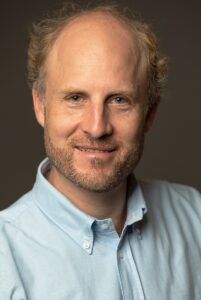This website uses cookies
We use cookies to ensure that we give you the best experience on our website. If you continue to use this site we will assume that you are happy with it.
Fleeing threats of arrest for apostasy, Artemis Ghasemzadeh escaped Iran in December 2024, hoping to find religious freedom in the United States. Instead, within minutes of crossing the border from Mexico to California, she was placed in detention, where the Department of Homeland Security showed no interest in considering her request for asylum.
On February 12, 2025, Ghasemzadeh and scores of other deportees were shackled, stripped of their passports, flown to Panama City, and locked inside a hotel. Their story soon reached the front page of the New York Times, accompanied by a photo of Ghasemzadeh and eight other Iranian Christians standing behind the window of their room, “HELP US” scrawled on the glass.

Ian Kysel
“It quickly became clear that a substantial proportion of the detainees were asylum seekers, people who have well-founded fears of persecution or torture,” says Ian Kysel, associate clinical professor of law and founding director of the Transnational Disputes Clinic. “Their stories hit you like a punch to the gut.”
The previous semester, the clinic had begun preparing for a second Trump administration by researching Title 42, a health provision used by Presidents Trump and Biden to expel nearly three million migrants during the pandemic. In work performed for the Global Strategic Litigation Council for Refugee Rights, currently housed at Cornell Law, the students debated what to expect at the start of 2025 and decided to propose an untested legal strategy. Rather than suing the United States for deporting asylum seekers, the clinic could sue the countries that received them, filing charges in the Organization of American States’ Inter-American Commission on Human Rights. Kysel explained, “We decided to argue that by knowingly assisting the U.S. in its wrongful acts, Panama also bears international responsibility.”
“We knew this was a novel argument, but we thought it would probably be the most effective,” says Riccardo Silvestri, LL.M. ’25, who participated in the clinic in the fall. “There was little chance the United States would heed a petition to stop deportations, whereas the Inter-American Commission has great weight in Latin America.”
“From there, we started creating templates for countries that could be accused of aiding and abetting deportations without due process,” says teammate Abigail Breneisen ’26. “It was intended to support seeking a precautionary measure, so if Title 42 was implemented again, there would be a framework ready to go, something to help people who were in imminent danger.”
Following reporting by the Times on the deportations to Panama, Kysel and several spring semester clinic students, worked around the clock to turn those templates into a petition and a request for an emergency order filed on March 1. By then, the deportees had been moved to a jungle detention camp in the Darién Gap, miles away from lawyers, journalists, and doctors.
With Kysel as lead counsel, the clinic and the council filed Ghasemzadeh et al. v. Panama, suing on behalf of 112 asylum seekers from Afghanistan, Cameroon, China, Eritrea, Iran, Pakistan, Russia, and Uzbekistan. The petition
Within days of the filing, and hours before they were due to report to the Commission in response to the lawsuit, Panama released the deportees and returned them to Panama City, giving them ninety days with the opportunity to apply for asylum in Panama.
“It’s been very challenging,” says Brady-Fuchsman, who spent March drafting witness statements and several urgent filings. “This is high-pressure, high-stakes litigation, and as a student, it’s been hard to keep up with everything all at once. But I’m getting to do really significant work, and it’s making a difference in people’s lives. That’s why I came to Cornell.”